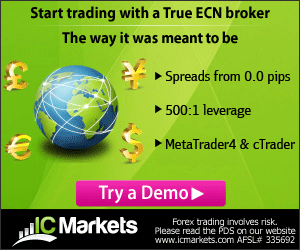World of Forex
What is Forex market?
Forex – The Forex Market is the abbreviation for the global currency exchange market FOReign EXchange. Since the 80s of the last century, with the increasing globalization and international exchange, and consequently the increased demand and supply of currencies on a global scale, the Forex market has been experiencing a period of dynamic development. The participants of the Forex market are primarily banks – central banks, investment banks and commercial banks – which trade in the name and on behalf of their clients, as well as they hedge their own transactions and speculate.
Increased trading volumes on the Forex market have been generated by Forex market investors – both professional and institutional – hedge funds, investment funds and retail investors as well, who have gained access to the Forex market thanks to the offer of Forex and CFD brokers. The Forex market offers to retail clients high liquidity, allowing them to enter and exit the market without price slippage, low trading costs, the possibility of speculating in anticipation of currency price to increase and decrease, as well as a high Forex leverage, which allows them to take positions many times higher than the amount of their funds on the Forex account.
What is leverage in trading?
Forex leverage – Leverage is a mechanism that enables a Forex and CFD market investor to invest in a market multiple of the capital held in a brokerage account. Leverage – or FX leverage or financial leverage – is the basis of margin trading. Margin trading is based on the principle that in order to open and maintain a position on the market, a trader is required to have only a fraction of the value of the position, depending on the Forex leverage on the trading account. The higher the leverage, i.e. the higher the level of leverage and Forex leverage, the less capital the trader needs to open the position.
For example, a Forex leverage of 1:100 requires a trader to have 1% of the position value, while a leverage of 1:200 requires only 0.5% of the CFD nominal value. Even higher leverage of Forex 1:500 will require only 0.2% of the value of your Forex position – in other words, opening a 100,000 EUR position will only require you to hold 200 EUR on your Forex account. A trader has to therefore be aware that trading in Forex with a high leverage can lead to huge trading profits as well as substantial losses, including the loss of all funds in the Forex account.
How does CFD work?
CFD – Contract For Difference (CFD) is a financial instrument – an agreement between the parties to the contract – the issuer of a CFD contract and its buyer, which obliges the parties to settle the difference in the price of opening and closing the contract. CFDs are classified as derivative instruments, which means that their valuation depends on the price of the instrument to which they are issued – the so-called underlying instrument. CFDs, like speculative instruments, do not transfer the rights to the underlying instrument to which they have been issued to the buyer.
For example, a buyer of a gold contract does not have a physical gold, but only a position that enables him to earn money from gold price appreciation. CFDs gained popularity at the turn of the 20th and 21st century and are now available in the offer of most Forex Brokers and other trading platforms available on the market, allowing access to CFDs for currencies, stock indices, commodities, shares or cryptocurrencies. An inherent feature of CFDs is financial leverage, which allows the investor to invest multiple times the funds held in the account. For example, a leverage of 1:10 means that a trader with a balance of EUR 1,000 on his account with Forex Broker is able to invest on the market ten times that amount, i.e. EUR 10,000.
Cryptocurrency – what is it?
Cryptocurrency – or digital currency and a cryptographic currency – based on Blockchain and Distributed Ledger Technology (DLT) technologies, a digital measure of value. Cryptocurrencies are not issued by states or central banks and their supply is fixed and limited in advance in order to maintain their crypto value over time and counteract inflation. New cryptocurrencies in the cryptocurrency network appear thanks to the process of so-called mining, which requires the involvement of significant computing power of computers. In exchange for the involvement of their processors in the process of extraction and maintenance of the cryptocurrency network, the so-called miners – diggers – receive remuneration in the form of cryptocurrency, which they can then sell on the market.
The most popular cryptocurrency in the world is Bitcoin, whose value in the period 2015-2018 increased from about 200 USD to almost 20,000 USD. Investment opportunities offered by the crypto market have been recognized by both crypto market investors and Forex Brokers, who have made it possible to make transactions, both to buy and short sell cryptos, through CFDs on cryptocurrencies. Apart from cryptocurrency Bitcoin, such cryptocurrencies as Ethereum, Litecoin, Ripple, Lisk or Bitcoin Cash attract a lot of attention from investors, who are also available with cryptocurrency CFDs.














